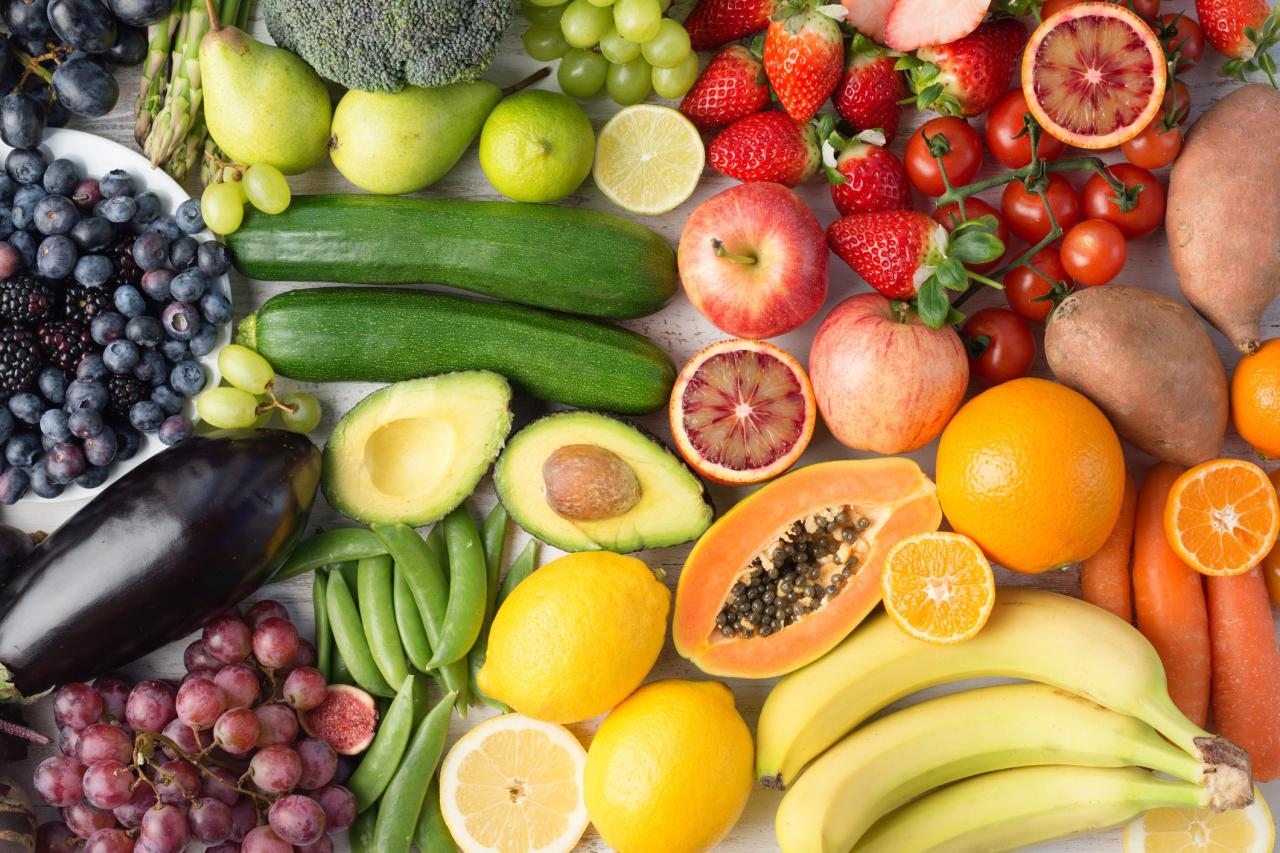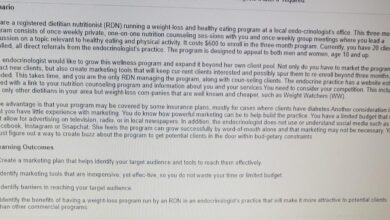
Diet-Friendly Meals to Boost Your Immune System
Diet friendly meals to support your immune system – Diet-friendly meals to support your immune system are more than just a trend – they’re a powerful way to strengthen your body’s natural defenses. We all know that a healthy diet plays a vital role in overall well-being, but did you know that specific foods can actually help your immune system fight off illness and keep you feeling your best?
This post explores the fascinating connection between nutrition and immunity, uncovering the secrets to building a strong and resilient immune system through delicious and easy-to-follow meal plans.
From understanding the role of essential nutrients to incorporating immune-boosting foods into your daily routine, we’ll cover everything you need to know to nourish your body and empower your immune system. Get ready to discover the power of food to support your health and well-being!
Understanding the Connection Between Diet and Immunity
Your immune system is your body’s natural defense against illness and infection. It’s a complex network of cells, tissues, and organs that work together to protect you from harmful invaders like bacteria, viruses, and parasites. While genetics plays a role, your lifestyle choices, particularly your diet, significantly impact your immune system’s strength.
The Role of Essential Nutrients in Supporting Immune Function
Essential nutrients are the building blocks of a healthy immune system. They provide the raw materials your body needs to produce and maintain immune cells, as well as the energy needed for them to function effectively.
- Vitamin Cis a powerful antioxidant that helps protect cells from damage caused by free radicals, which can weaken the immune system. It also plays a role in the production of white blood cells, which are essential for fighting infection.
- Vitamin Dhelps regulate immune function and may reduce the risk of autoimmune diseases. It’s produced by the body when exposed to sunlight, and it’s also found in some foods like fatty fish and eggs.
- Zincis crucial for immune cell development and function. It helps activate immune cells and plays a role in wound healing.
- Seleniumis an antioxidant that helps protect immune cells from damage. It’s also involved in the production of antibodies, which are proteins that help fight infection.
Specific Nutrient Deficiencies Can Weaken the Immune System
When you don’t get enough of certain essential nutrients, your immune system can become compromised. This can make you more susceptible to infections and illnesses.
- Vitamin C deficiencycan lead to a weakened immune system, making you more vulnerable to infections like colds and flu. Scurvy, a severe form of vitamin C deficiency, can cause fatigue, bleeding gums, and slow wound healing.
- Vitamin D deficiencycan increase the risk of autoimmune diseases, respiratory infections, and certain types of cancer. It can also contribute to bone weakness and fractures.
- Zinc deficiencycan impair immune function, leading to an increased risk of infections. It can also cause hair loss, skin lesions, and delayed wound healing.
- Selenium deficiencycan weaken the immune system, making you more susceptible to infections. It can also contribute to thyroid problems and infertility.
Foods Rich in Immune-Boosting Nutrients
A balanced diet rich in fruits, vegetables, whole grains, lean protein, and healthy fats can provide the nutrients your immune system needs to function optimally.
Nourishing your body with immune-boosting foods is crucial, especially during intense training. While focusing on nutrient-dense meals like leafy greens and colorful vegetables, remember that endurance athletes have specific needs for energy replenishment. To optimize your performance and recovery, it’s important to learn about proper carb loading strategies, like those outlined in this article on how endurance athletes should carb up during workouts.
By understanding how to fuel your body effectively, you can support both your immune system and your athletic goals.
- Citrus fruits, like oranges, grapefruits, and lemons, are excellent sources of vitamin C.
- Berries, such as strawberries, blueberries, and raspberries, are packed with antioxidants and vitamin C.
- Leafy green vegetables, like spinach, kale, and collard greens, are rich in vitamin C, vitamin A, and folate.
- Garlichas antimicrobial properties and may boost immune function.
- Gingerhas anti-inflammatory properties and may help reduce the severity of colds and flu.
- Nuts and seedsare good sources of zinc, selenium, and vitamin E.
- Fatty fish, like salmon, tuna, and mackerel, are rich in vitamin D and omega-3 fatty acids, which are important for immune function.
Diet-Friendly Meals for Immune Support
A well-balanced diet rich in essential nutrients is crucial for a robust immune system. By incorporating a variety of immune-boosting foods into your daily meals, you can provide your body with the necessary tools to fight off infections and maintain overall health.
Weekly Meal Plan
This weekly meal plan features a variety of nutrient-rich foods that support a healthy immune system. Each day includes a breakfast, lunch, and dinner option, along with a snack suggestion.
- Monday:
- Breakfast:Oatmeal with berries and nuts
- Lunch:Salad with grilled chicken and mixed greens
- Dinner:Salmon with roasted vegetables
- Snack:Greek yogurt with fruit
- Tuesday:
- Breakfast:Smoothie with spinach, banana, and protein powder
- Lunch:Lentil soup with whole-wheat bread
- Dinner:Chicken stir-fry with brown rice
- Snack:Carrot sticks with hummus
- Wednesday:
- Breakfast:Whole-wheat toast with avocado and egg
- Lunch:Leftover chicken stir-fry
- Dinner:Turkey chili with cornbread
- Snack:Apple slices with peanut butter
- Thursday:
- Breakfast:Yogurt parfait with granola and fruit
- Lunch:Quinoa salad with chickpeas and vegetables
- Dinner:Vegetarian lasagna with spinach and ricotta
- Snack:Trail mix with nuts and seeds
- Friday:
- Breakfast:Pancakes with berries and maple syrup
- Lunch:Leftover vegetarian lasagna
- Dinner:Pizza with whole-wheat crust, vegetables, and lean protein
- Snack:Edamame
- Saturday:
- Breakfast:Eggs with whole-wheat toast and avocado
- Lunch:Grilled chicken salad with mixed greens and avocado
- Dinner:Beef stew with whole-wheat bread
- Snack:Popcorn
- Sunday:
- Breakfast:Waffles with fruit and whipped cream
- Lunch:Leftover beef stew
- Dinner:Roasted chicken with roasted vegetables
- Snack:Fruit salad
Immune-Boosting Recipes
Here are some easy-to-prepare recipes that incorporate immune-boosting ingredients:
Chicken Noodle Soup
Ingredients:
- 1 tablespoon olive oil
- 1 onion, chopped
- 2 carrots, chopped
- 2 celery stalks, chopped
- 4 cloves garlic, minced
- 8 cups chicken broth
- 1 cup cooked chicken, shredded
- 1 cup egg noodles
- Salt and pepper to taste
Instructions:
- Heat olive oil in a large pot over medium heat.
- Add onion, carrots, and celery, and cook until softened, about 5 minutes.
- Add garlic and cook for 1 minute more.
- Pour in chicken broth and bring to a boil.
- Reduce heat and simmer for 15 minutes.
- Stir in chicken and noodles.
- Cook until noodles are tender, about 5 minutes.
- Season with salt and pepper to taste.
Broccoli and Chickpea Salad
Ingredients:
- 1 head broccoli, chopped
- 1 can chickpeas, drained and rinsed
- 1/2 cup chopped red onion
- 1/4 cup chopped fresh parsley
- 1/4 cup lemon juice
- 2 tablespoons olive oil
- Salt and pepper to taste
Instructions:
- Steam broccoli until tender-crisp, about 5 minutes.
- In a large bowl, combine broccoli, chickpeas, red onion, and parsley.
- Whisk together lemon juice, olive oil, salt, and pepper.
- Pour dressing over salad and toss to coat.
Ginger-Garlic Salmon with Roasted Vegetables
Ingredients:
- 1 pound salmon fillet
- 1 tablespoon olive oil
- 1 tablespoon grated ginger
- 2 cloves garlic, minced
- 1/2 teaspoon salt
- 1/4 teaspoon black pepper
- 1 cup broccoli florets
- 1 cup Brussels sprouts, halved
- 1/2 cup chopped red onion
Instructions:
- Preheat oven to 400 degrees F (200 degrees C).
- In a small bowl, combine olive oil, ginger, garlic, salt, and pepper.
- Rub the mixture onto the salmon fillet.
- Place salmon on a baking sheet lined with parchment paper.
- Toss broccoli, Brussels sprouts, and red onion with olive oil, salt, and pepper.
- Spread vegetables around the salmon on the baking sheet.
- Roast in preheated oven for 15-20 minutes, or until salmon is cooked through and vegetables are tender.
Meal Ideas by Nutrient Focus
| Nutrient | Meal Ideas |
|---|---|
| Vitamin C |
|
| Zinc |
|
| Protein |
|
| Vitamin D |
|
Essential Nutrients for Immune Health

A robust immune system relies on a steady supply of essential nutrients. These nutrients act as building blocks for immune cells, support their function, and help the body fight off infections. By incorporating these nutrients into your diet, you can bolster your immune defenses and promote overall health.
Vitamin C for Immune Function
Vitamin C, also known as ascorbic acid, is a powerful antioxidant that plays a crucial role in immune health. It helps in the production of white blood cells, which are the body’s first line of defense against infections. Vitamin C also aids in the production of collagen, a protein that helps maintain the integrity of tissues and blood vessels.
Fueling your body with the right nutrients is crucial for a strong immune system, especially during times of stress. Think of it like building a strong foundation for your health, which is equally important for maintaining consistent progress in your workouts.
If you’re feeling stuck in a rut, check out this article on 6 ways to avoid workout plateaus and consistently progress. Once you’ve tackled those workout challenges, remember to keep your immune system strong by incorporating plenty of fruits, vegetables, and lean protein into your diet.
A balanced diet and consistent exercise go hand-in-hand for a healthy and happy you!
Vitamin C is essential for the proper function of immune cells, including lymphocytes and neutrophils.
Zinc’s Role in Immune Cell Development and Activity
Zinc is a mineral that is essential for the development and function of immune cells. It is involved in the production of T cells, which are responsible for targeting and destroying infected cells. Zinc also helps to regulate the activity of natural killer (NK) cells, which kill infected cells directly.
Zinc deficiency can lead to impaired immune function, making individuals more susceptible to infections.
Selenium, Vitamin D, and Protein for Immune Support
Besides vitamin C and zinc, other nutrients are vital for a strong immune system.
Fueling your body with the right nutrients is key to a strong immune system, and that means focusing on diet-friendly meals packed with vitamins and antioxidants. But don’t forget about exercise! A brisk walk can be just as beneficial as a run, and choosing the right shoes is crucial.
If you’re curious about the differences between walking and running shoes, check out this helpful guide: walking versus running shoes whats the difference. Once you’ve got your footwear sorted, you can focus on those immune-boosting meals and get your body moving!
- Selenium:This mineral is a potent antioxidant that helps protect cells from damage caused by free radicals. It also plays a role in the production of antibodies, which are proteins that bind to and neutralize pathogens.
- Vitamin D:This vitamin is often referred to as the “sunshine vitamin” because our bodies produce it when exposed to sunlight. Vitamin D helps regulate immune function by supporting the production of immune cells and reducing inflammation.
- Protein:Protein is essential for the development and function of all cells in the body, including immune cells. It provides the building blocks for antibodies, cytokines, and other immune system components.
Lifestyle Factors that Enhance Immunity

Your immune system is a complex network that protects your body from harmful invaders like bacteria, viruses, and fungi. While a healthy diet plays a crucial role in supporting your immune function, lifestyle factors also have a significant impact. By adopting healthy habits, you can bolster your immune system and increase your resilience against infections.
The Impact of Sleep on Immunity
Sleep is essential for immune function. During sleep, your body produces proteins called cytokines that help regulate inflammation and fight infection. When you don’t get enough sleep, your body produces fewer cytokines, making you more susceptible to illness. Aim for 7-9 hours of quality sleep each night to support a robust immune system.
Stress Management and Immune Health
Chronic stress can weaken your immune system. When you’re stressed, your body releases hormones like cortisol, which can suppress immune function. Stress management techniques like meditation, yoga, and deep breathing can help reduce cortisol levels and boost your immune system.
Exercise and Immune Function, Diet friendly meals to support your immune system
Regular exercise has numerous benefits for your health, including a stronger immune system. Exercise can help improve circulation, reduce inflammation, and boost the production of immune cells. Aim for at least 30 minutes of moderate-intensity exercise most days of the week to support your immune function.
Common Diet Mistakes that Weaken Immunity
It’s not just what you eat, but also what you avoid that can impact your immune system. Certain dietary habits can inadvertently weaken your body’s defenses, leaving you more susceptible to infections and illnesses. Understanding these common dietary mistakes can empower you to make informed choices and strengthen your immune response.
Excessive Sugar Consumption
Sugar, in its various forms, is a known immune system suppressant. When consumed in excess, sugar can lead to chronic inflammation, a state that weakens the immune system’s ability to fight off pathogens.
- Increased Inflammation:Sugar triggers the release of inflammatory molecules, such as cytokines, which can lead to chronic inflammation. This chronic inflammation weakens the immune system and makes it more difficult for the body to fight off infections.
- Impaired White Blood Cell Function:Sugar can impair the function of white blood cells, which are essential for fighting infections. High sugar intake can reduce the ability of white blood cells to effectively recognize and destroy pathogens.
- Reduced Antibody Production:Studies have shown that excessive sugar consumption can decrease the production of antibodies, which are proteins that help the body fight off infections. This reduction in antibody production leaves the body more vulnerable to infections.
Final Wrap-Up: Diet Friendly Meals To Support Your Immune System
By incorporating these diet-friendly meals into your daily life, you can empower your immune system to thrive. Remember, a balanced diet rich in essential nutrients is a cornerstone of a healthy lifestyle. And, don’t forget to consult a healthcare professional for personalized advice.
So, let’s raise a glass to a stronger, healthier you, one delicious and immune-boosting meal at a time!






